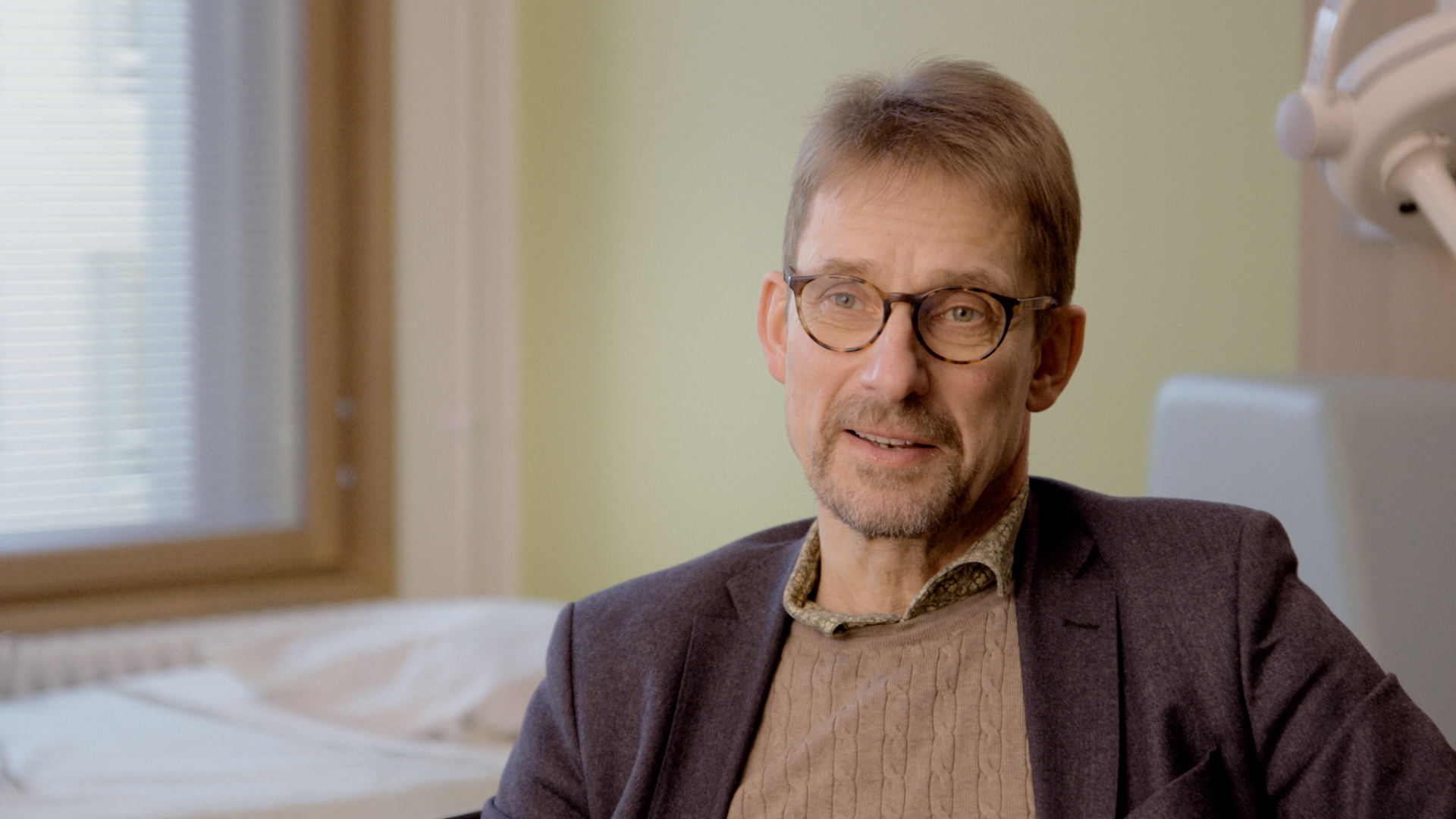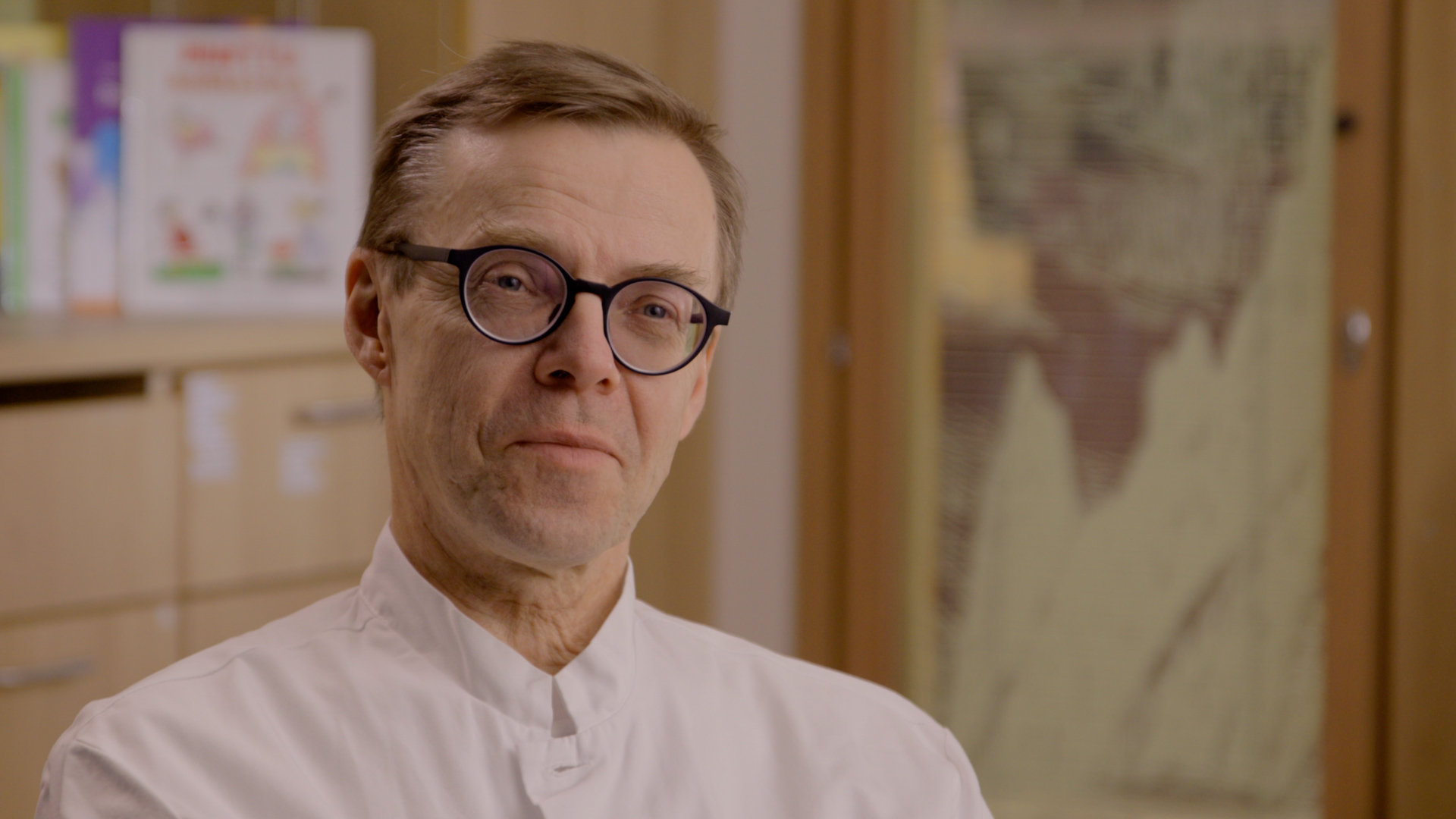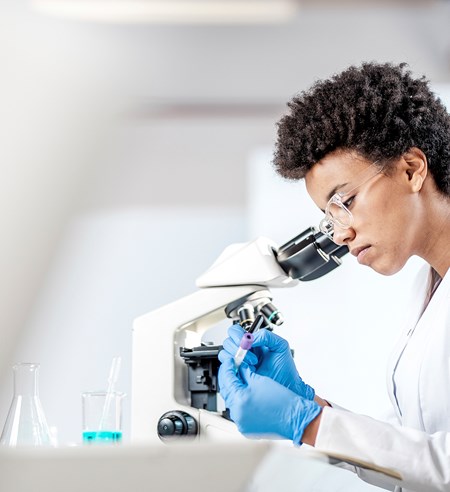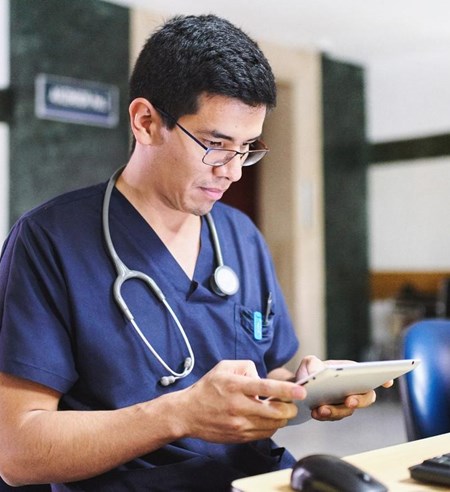Head of AI and Data Solutions
The challenge
Helsinki University Hospital (HUS) is Finland’s largest healthcare provider. HUS currently has more than 1000 guidelines on providing specialist medical care to children. However, the professionals from New Children’s Hospital find it challenging to search for and find the right guidelines in the HUS database.
The solution
Tietoevry Care has spent years focusing on finding ways to harness and utilize healthcare data. The application developed for HUS builds on this knowledge, using generative AI to optimize how clinicians search for information – saving them substantial time when looking for documents. Thanks to AI, nurses and doctors from New Children’s Hospital will now have a lighter workload and more time to spend on treating patients.
The app uses the Azure OpenAI and Azure AI Search services, as well as the GPT 4.0 Turbo language model with HUS’s own data lake. The initial phase of the project is based only on HUS’s internal patient guidelines and no patient data is being processed for the purposes of the pilot. Going forward, the app will also compile guidelines from a range of other sources.
Generative AI supports clinicians in decision making

About the customer
The New Children’s Hospital is Finland’s largest hospital focusing on demanding specialist paediatric medical care, caring for children from all around Finland, from newborns to 15-year-olds. The treatments for a large number of demanding childhood illnesses – such as heart surgeries and organ transplants – are centralized at the New Children’s Hospital. A total of approximately 2100 people work in HUS’s pediatric units, including 350 doctors, 1400 nurses, and approximately 350 other medical professionals. Approximately 86000 patients are treated at the hospital each year.
Benefits of the AI solution

Freeing up time for patients
Optimizing and streamlining information retrieval ensures doctors and nurses have more time to interact with their patients.

Improving job satisfaction
The AI app makes the process of searching for documents more efficient. This helps care staff to feel less rushed and stressed.

Treating patients with personalized care
Providing patients with detailed guidelines in their own language increases their confidence in the treatment they are receiving.
Specialist guidelines for treating children and young people are constantly being updated by Helsinki University Hospital (HUS). Now an AI pilot application developed by Tietoevry is being tested by clinicians from Helsinki New Children’s Hospital if they can find the information faster in the HUS databank.

Jari Petäjä is HUS Director for Children and Adolescents. He says the new AI-based guideline databank will bring benefits to patients and staff alike:
“We can just enter any search terms into the databank and be presented with all the relevant guidelines and an analysis of the topic at hand. It’s extremely useful,” says Petäjä. “Making the search for information more user-friendly also helps to improve job satisfaction and allows staff to spend more time with patients.”
Petäjä predicts that the way staff search for information will change, with the new guideline databank and its search functionality set to become a permanent fixture on care workers’ screens. “This app may well become the go-to place to look for information,” he says.
AI to assist with translations
HUS treats patients from more than 50 different language groups, so there is a strong need for automated language support. This need is most acute in the Pediatric Emergency Department, where care providers need to communicate clearly with distressed children and parents.
Petäjä believes that the app’s comprehensive language menus and options may prove to be a key benefit.
“In the future, guidance translated by AI could be shown to families who speak other languages and with whom communication might otherwise be challenging,” states Petäjä.

“We use our databanks to provide home-care guidelines for families. It would be very useful for this information to be translated with the assistance of AI,” says HUS Chief Physician Mikael Kuitunen.
The language options being developed by Tietoevry could improve the service provided to clients who speak other languages, as it can be difficult to source the right translation expertise. There is a cost benefit too.
“Translating large amounts of material with the help of AI would improve interaction between patients and doctors, as well as increase confidence in the treatment process,” says Kuitunen.
Developing clinicians’ tools with AI
Petäjä believes that AI’s greatest potential lies in information retrieval and processing. HUS engages in cooperation with other hospitals and organizations both within and outside the EU. Petäjä is keen to highlight the diversity of these healthcare organizations, and believes that AI may significantly promote knowledge-based management and cooperation.
“Several ideas on uses for AI have already arisen throughout the project,” he says. “The goal is for the content of the guideline databank – initially drawn from HUS’s own data lake – to be expanded to include other medical databases too.”
These could include the database of the Finnish scientific association Duodecim, as well as international medical organizations.
Could AI help to improve job satisfaction?
One of the biggest challenges in day-to-day care work is ensuring staff wellbeing. AI could help to reduce the burden of stress on these key workers.
“If AI could make a specialist-care hospital a calmer place to work, that would be massively beneficial. AI can remove unnecessary burdens and provide caregivers with room to focus on what is really important. This would help our overall care systems to function better and would increase employee satisfaction,” Petäjä explains.
Kuitunen sees the AI app developed with Tietoevry as being beneficial in quickly sorting through vast quantities of information to retrieve the right guidelines. This is especially critical in fast-paced emergency situations.
“The app could search for and provide comprehensive information to assist the caregiver. For example, when an experienced doctor is dealing with a rarer illness, the AI solution could be very useful in rapidly providing information from the guidelines databank,” says Kuitunen.
Read more about the Data-driven solutions for health and care





